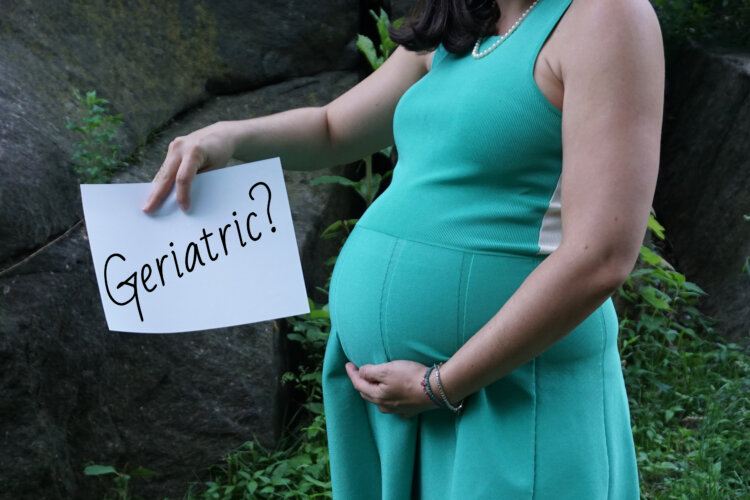
Once upon a time, I thought I had real worries. Then in my 30s, I started thinking seriously about life decisions. I worried about whether I was going to marry the man who mostly-kind of-definitely didn’t want to marry me. About waiting, wasting time, how much “life” we were missing. Leaving a job I used to love. Where, and what, and how I might do something else. Whether making a major life change would even further delay my having children, if I could even have them at all, if I really believed in myself enough to decide I could be a parent.
And then I turned 36. The wrong side of 35, out of the safe zone where it’s a breeze to have kids and rainbows fall from the sky in the delivery room, and into the danger zone of “geriatric pregnancy.” Or, at least, that’s how I feel, now that I’m at an age where my fertility is officially Of Concern. All of a sudden there are these scare terms like “geriatric pregnancy” and “advanced maternal age,” which are staring me down at the end of a long corridor, telling me that I’ve waited too long, that my life is effectively over, that it would be selfish and wrong to even think about having kids at my age.
I feel like I’m in the prime of life. So why is the medical community talking about people like me with such a loaded vocabulary?
To be clear, I know that fertility wanes with age, and risks to mom and baby increase with age. I’m not trying to fight the science. My issue is with the terminology we’re using to talk about women choosing to wait until they’re ready–or not choosing to wait, simply trying and failing, which is too common and so heartbreaking. Let me also check my privilege: I know these worries are luxuries, that I’m lucky to have agency and choice. But tell that to my crushing sense of failure.
My ob/gyn was not the person who first introduced me to the idea of geriatric pregnancy. In fact, she doesn’t even use the term. “Obviously, women need to make decisions about their reproductive plans that make sense in their lives,” she told me when we were talking about the cultural trend of having first babies later. “As someone who was ‘advanced maternal age’ for my last two pregnancies, I definitely was concerned about the medical risks, especially chromosomal abnormalities, but I also knew that most pregnancies at this age are still healthy and normal.”
I first heard about geriatric pregnancy when my best friend, having her first baby at 35, was talking about how terrifying it was for her to be called “geriatric” when taking the biggest and scariest step in her life. In the few years since, three more close friends became mothers at or after 35, and all of them were termed “geriatric pregnancies” by medical professionals. (“Every time they said it, it was like getting stabbed with a cattle prod,” one said.) These friends all waited until they felt ready–and in one case, went through seven rounds of IVF.
“So many people are having babies later and later,” that same friend said to me. “Shouldn’t we respect that and be kind?”
I think so. In every other context, “geriatric” applies to people over age 65. Even if it’s meant as a purely clinical term, it still feels scary and judgmental (and, let’s face it, woman-shaming), especially knowing there are additional risks, some of which came from our own choices.
“I do counsel patients in their later 30s that if they want to have children, to really start thinking about when they want that to happen,” my ob/gyn said. “Celebrities can make it look easy, but many have fertility treatment and it can be costly and not always successful. That can be especially devastating–to have delayed pregnancy and then not be able to achieve it.”
Even still, my uterus isn’t a dust bowl filled with the hopes and dreams of my youth–at least not yet. And no matter what age I’ll be when I eventually have kids, if I ever do, I hope there will be a new way to talk about pregnancy later in life. I don’t know if it will ever happen for me, but I do know that if it does, I definitely won’t be “geriatric.”


Grok Nation Comment Policy
We welcome thoughtful, grokky comments—keep your negativity and spam to yourself. Please read our Comment Policy before commenting.